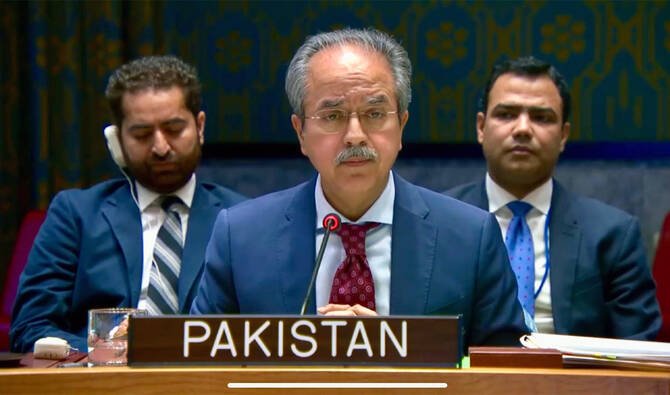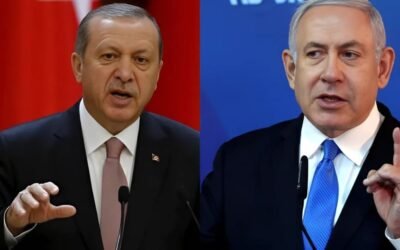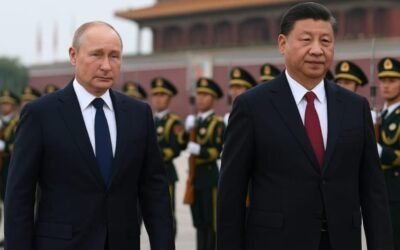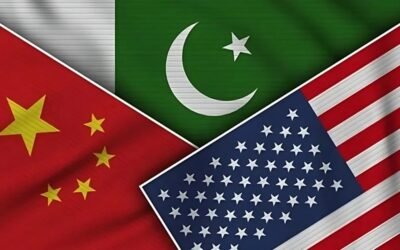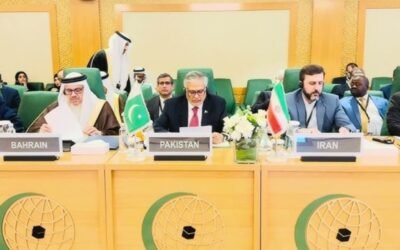As the United Nations approaches its 80th anniversary, its most powerful body, the Security Council, is under growing criticism for failing to maintain peace in the world’s most volatile regions. From Gaza to Ukraine, and Kashmir to Sudan, the Council’s inability to enforce its resolutions is raising fundamental questions about its credibility.
This July, Pakistan is using its rotating presidency of the Council to refocus attention on a largely neglected clause in the UN Charter: the peaceful settlement of disputes. It will host a high-level debate on July 22, chaired by Pakistan’s Deputy Prime Minister and Foreign Minister Mohammad Ishaq Dar. UN Secretary-General António Guterres is also expected to speak.
The Security Council: Words Without Action
Established to prevent global wars and uphold peace, the Security Council has struggled to enforce its own decisions. Its resolutions, which are meant to be legally binding, are increasingly ignored or left partially implemented.
Recent Conflict Examples
| Conflict | UNSC Resolution Implemented? | Outcome |
|---|---|---|
| Gaza (2023–2025 war) | Partially | Ceasefire achieved via backchannel diplomacy |
| Ukraine (since 2022) | Blocked by Russia | No resolution enforced |
| Kashmir (since 1948) | No | Plebiscite never held |
| Sudan | Weak response | Ongoing violence, minimal diplomatic impact |
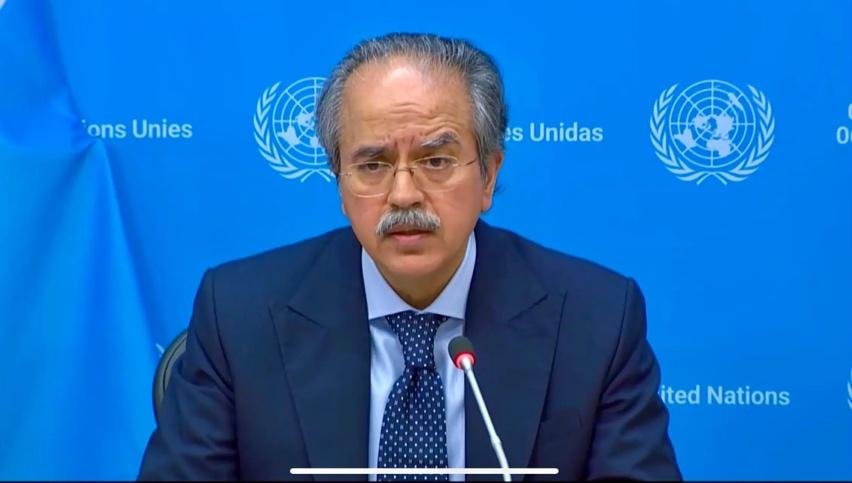
Source: PakUN
In an interview, Pakistan’s UN ambassador Asim Iftikhar Ahmad said the Council is no longer seen as capable of fulfilling its core mission: maintaining peace and security. “More than passing resolutions, we need the political will to enforce them,” he noted, emphasizing the role of the permanent five members (P5): the US, UK, France, China, and Russia.
It was a pleasure to host the UN Secretary-General, @antonioguterres and fellow Permanent Representatives of the United Nations Security Council for a luncheon at the Pakistan Mission.
We discussed matters on the agenda of the Council. pic.twitter.com/tUb3xp4V2Q
— Asim Iftikhar Ahmad, PR of Pakistan to the UN (@PakistanPR_UN) July 12, 2025
Kashmir: A Symbol of Inaction
The UN Security Council passed Resolution 47 in 1948, calling for a plebiscite in Jammu and Kashmir so its people could decide their future. That vote never happened. India later backed away from its commitments, especially after it revoked the region’s special status in August 2019, stripping its autonomy under Article 370 of its constitution.
According to historian Ayesha Jalal, the move fundamentally altered political representation in the region. “The real impact is on the suspension of any mutually accepted political link between the chosen representatives of the people of Kashmir and India,” she said.
The Council barely reacted, except when China raised the issue. Richard Gowan, UN Director at the International Crisis Group, said the Kashmir dispute caught Council members off guard. “They hadn’t done their homework on Kashmir. They never expected it to come up,” he noted.
Key Events in Kashmir Dispute
| Year | Event | UN Response |
|---|---|---|
| 1948 | UNSC Resolution 47 passed | Plebiscite called, never held |
| 1970s | Issue dropped from active debate | No action |
| 2019 | India revokes Article 370 | China raises issue in Council |
| 2024 | Pakistan calls for renewed focus | Debate scheduled under Pakistan’s presidency |
Growing Disillusionment with the Council
The Council has become more symbolic than functional. Ceasefires and peace deals are often negotiated outside of it, and in some cases, the P5 members block action for political reasons. For instance, Russia has vetoed all meaningful resolutions on Ukraine. On Gaza, the Council’s calls for ceasefire were largely ignored or only partly fulfilled.
Ambassador Ahmad acknowledged the frustration, but said that the failure lies in enforcement—not the resolutions themselves. “The resolution of the Security Council has weight,” he said. “But without implementation, that weight means little.”
Why Pakistan’s Debate Matters
Pakistan’s July 22 debate aims to revive the UN Charter’s Article 33, which encourages peaceful means to resolve disputes—negotiation, mediation, arbitration—before force is used. This principle, though foundational, has been overshadowed by military responses and great power politics.
Richard Gowan predicts the session will resonate with many UN members, especially those frustrated by the Council’s inaction. But he also expects uncomfortable questions to be raised—about Gaza, Ukraine, and Kashmir—highlighting the Council’s selective approach to conflict.
Pakistan’s Broader UN Engagement
Pakistan has long viewed its role in the UN as central to its foreign policy. It contributes significantly to peacekeeping, development, and humanitarian missions.
Pakistan has played a proactive and consistent role within the United Nations system, reflecting its commitment to global peace and multilateral diplomacy. It is one of the largest contributors to UN peacekeeping missions, regularly providing troops and police personnel to some of the most challenging conflict zones. In the humanitarian arena, Pakistan has worked closely with the UN in disaster response efforts, both within its borders and internationally. On development, Pakistan collaborates with various UN agencies to advance Sustainable Development Goals (SDGs), focusing on poverty reduction, education, and climate resilience. Diplomatically, Pakistan maintains permanent missions in New York and Geneva, ensuring its voice is present in key global negotiations. It has also served several terms as a non-permanent member of the UN Security Council, actively participating in discussions on international peace and security. One of its longstanding diplomatic priorities at the UN is advocating for the implementation of Security Council resolutions on Jammu and Kashmir. Additionally, Pakistan has consistently supported calls for reforming the UN Security Council to make it more inclusive, transparent, and representative of current global realities.
Pakistan’s move to spotlight peaceful dispute resolution isn’t likely to transform the Security Council overnight. But it’s a timely reminder that diplomacy, not force, is the UN’s founding promise. With its July 22 debate, Pakistan is pushing the Council to remember that peace must be practiced—not just promised.
If the UN is to retain global relevance, it must close the gap between its lofty ideals and ground realities. Otherwise, its 80th anniversary risks becoming less a celebration of peace—and more a reckoning with failure.

